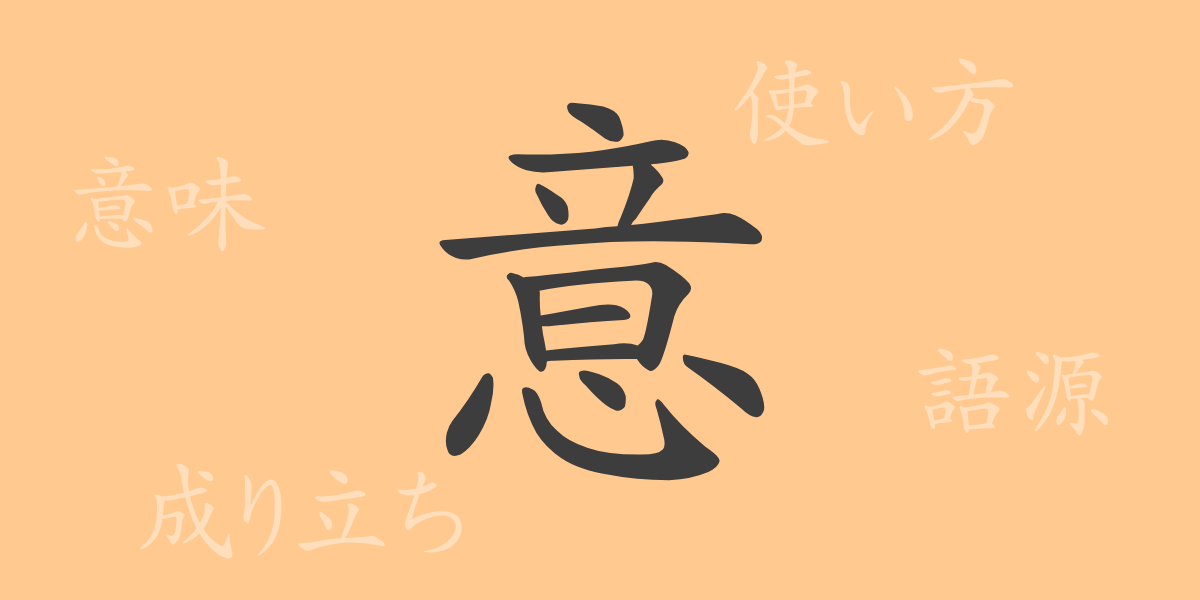“
The beauty of the Japanese language lies in its complexity and depth. Each Kanji character tells a story, and today we spotlight the Kanji ‘意’ (I), exploring its profound world. This article delves into the origins, meanings, usages, and readings of ‘意’, and extends to phrases and idioms involving this character, uncovering its full scope.
Origins of 意 (I)
The Kanji ‘意’ has deep historical roots stemming from ancient China. Originally, it combined ‘音’ (sound) with ‘心’ (heart), symbolizing the ‘sound within the heart,’ or thoughts. Over time, ‘意’ evolved to represent abstract concepts such as ‘intention,’ ‘meaning,’ and ‘tendency,’ continuing to play a significant role up to the present day.
Meaning and Usage of 意
‘意’ conveys abstract concepts like intent, meaning, direction, and desire, reflecting the movements and thoughts of the mind. In Japanese, it forms part of many words, each carrying unique nuances. For instance, ‘意志’ (will or resolve), ‘意味’ (meaning or significance), and ‘意向’ (intention or inclination).
Readings, Stroke Count, and Radical of 意
The Kanji ‘意’ is versatile in its usage in the Japanese language:
- Readings: On’yomi (Sino-Japanese reading) is ‘I’, with no specific kun’yomi (native Japanese readings).
- Stroke Count: 13 strokes.
- Radical: Heart (心 or 忄, Rissinben).
Phrases and Idioms Using 意
Phrases and idioms that include ‘意’ are plentiful in Japanese, exemplifying various aspects of human emotion and situations:
- 意気投合 (Ikitougou): Finding mutual understanding or hitting it off.
- 意気消沈 (Ikisyoutin): Feeling disheartened or depressed.
- 意味深長 (Imisintyou): Having a profound or significant implication.
- 意地悪 (Ijiwaru): Being malicious or mean-spirited on purpose.
- 意外と (Igai-to): Unexpectedly or surprisingly.
- 意を決する (I-wo-ke-ssuru): To make up one’s mind or to decide firmly.
These phrases enrich everyday conversation and literary expressions, illustrating the emotional and situational dynamics in communication.
Summary of 意
The Kanji ‘意’ exemplifies the richness of expression in the Japanese language, capturing the complexities of human thought and emotion in a single character. As a fundamental part of everyday communication and cultural expression, ‘意’ is indispensable. Understanding this character is a crucial step for learners of the Japanese language, enhancing their grasp of the language’s subtleties and depth.
“

























